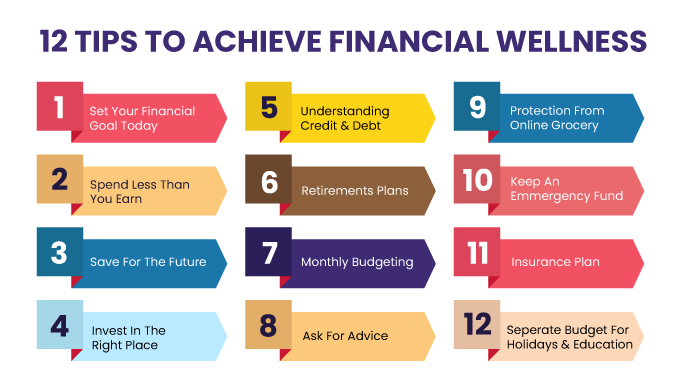Managing finances effectively is crucial in today’s economic climate, where financial stress has become a common concern for many individuals. With the rising cost of living and increasing financial obligations, prioritizing spending has become essential to avoid financial strain. By making informed decisions about where to allocate one’s resources, individuals can better navigate financial challenges and achieve a more stable economic future. Effective prioritization of spending enables individuals to meet their financial obligations, reduce debt, and build savings, ultimately leading to reduced financial stress and increased peace of mind, allowing for a more secure financial foundation.
Effective Financial Management: Prioritizing Spending to Mitigate Financial Stress
To avoid financial stress, it is crucial to manage your finances effectively. This involves understanding where your money is going and making conscious decisions about how to allocate your resources. By prioritizing your spending, you can ensure that your essential needs are met while also working towards your long-term financial goals.
Assessing Your Financial Situation
The first step in prioritizing your spending is to have a clear understanding of your financial situation. This involves tracking your income and expenses to identify areas where you can cut back on non-essential spending. By doing so, you can free up more money in your budget to allocate towards your priorities, such as paying off debt or building an emergency fund.
Creating a Budget
Once you have a clear understanding of your financial situation, you can create a budget that reflects your priorities. This involves categorizing your expenses into needs and wants, and allocating your money accordingly. By giving priority to essential expenses such as housing, food, and healthcare, you can ensure that your basic needs are met.
Implementing Spending Priorities
To effectively prioritize your spending, you need to implement strategies that help you stick to your budget. This can involve automating your savings or cutting back on discretionary spending. By doing so, you can make progress towards your financial goals while minimizing financial stress.
 El Reto del Caramelo: el challenge viral que conquistó TikTok, Instagram y YouTube
El Reto del Caramelo: el challenge viral que conquistó TikTok, Instagram y YouTube| Priority Level | Expense Category | Examples |
|---|---|---|
| High Priority | Essential Expenses | Rent/Mortgage, Utilities, Food, Healthcare |
| Medium Priority | Savings and Debt Repayment | Emergency Fund, Retirement Savings, Debt Repayment |
| Low Priority | Discretionary Spending | Dining Out, Entertainment, Hobbies |
Managing Your Finances Effectively to Reduce Stress
Prioritizing spending is crucial in avoiding financial stress, as it allows individuals to allocate their resources efficiently, ensuring that essential expenses are covered while also making progress towards long-term financial goals.
Assessing Your Financial Situation
To prioritize spending effectively, it’s essential to have a clear understanding of your current financial situation, including your income, expenses, debts, and savings, which will enable you to identify areas where adjustments can be made to optimize your financial resources.
Identifying Essential Expenses
Essential expenses, such as housing costs, food, and utilities, should be the top priority when allocating your financial resources, as they are crucial for maintaining a basic standard of living and avoiding financial hardship.
Implementing a Budgeting Plan
Creating and sticking to a budgeting plan is vital in prioritizing spending, as it helps to track income and expenses, identify areas of wasteful spending, and make informed decisions about how to allocate your financial resources effectively.
Reducing Non-Essential Expenses
Reducing non-essential expenses, such as dining out or subscription services, can help to free up more resources for essential expenses and long-term savings, thereby reducing financial stress and improving overall financial well-being.
 El Reto del Yate: lujo, aspiración y la fantasía viral que dominó las redes sociales
El Reto del Yate: lujo, aspiración y la fantasía viral que dominó las redes socialesBuilding an Emergency Fund
Building an emergency fund is also crucial in avoiding financial stress, as it provides a safety net in case of unexpected expenses or income disruptions, helping to prevent debt accumulation and maintain financial stability.
Frequently Asked Questions
What is financial stress and how does it impact daily life?
Financial stress occurs when an individual is unable to meet their financial obligations, leading to anxiety and worry. It can impact daily life by affecting sleep, relationships, and overall well-being. Financial stress can also limit one’s ability to enjoy activities and make long-term plans, ultimately reducing quality of life and potentially leading to more severe mental health issues.
How can I identify areas where I can cut back on unnecessary spending?
To identify areas for cutbacks, track your expenses over a month to understand where your money is going. Categorize expenses into needs and wants, and look for patterns of unnecessary spending. Review bank statements and receipts to pinpoint areas where you can reduce spending, such as dining out or subscription services. Adjust your spending habits accordingly to allocate funds more efficiently.
What are some effective strategies for prioritizing spending?
Effective strategies for prioritizing spending include creating a budget, setting financial goals, and using the 50/30/20 rule. Allocate 50% of your income towards necessary expenses, 30% towards discretionary spending, and 20% towards saving and debt repayment. Prioritize essential expenses, such as rent and utilities, over discretionary spending, like entertainment. Regularly review and adjust your budget to stay on track.
How can I maintain my prioritized spending plan over time?
To maintain a prioritized spending plan, regularly review your budget and adjust as needed. Automate savings and bill payments to ensure timely transactions. Avoid impulse purchases by implementing a waiting period before buying non-essential items. Stay committed to your financial goals and remind yourself of the benefits of reduced financial stress. Make adjustments to your spending plan as your financial situation or goals change.
 Create effective budget plans for success
Create effective budget plans for success
